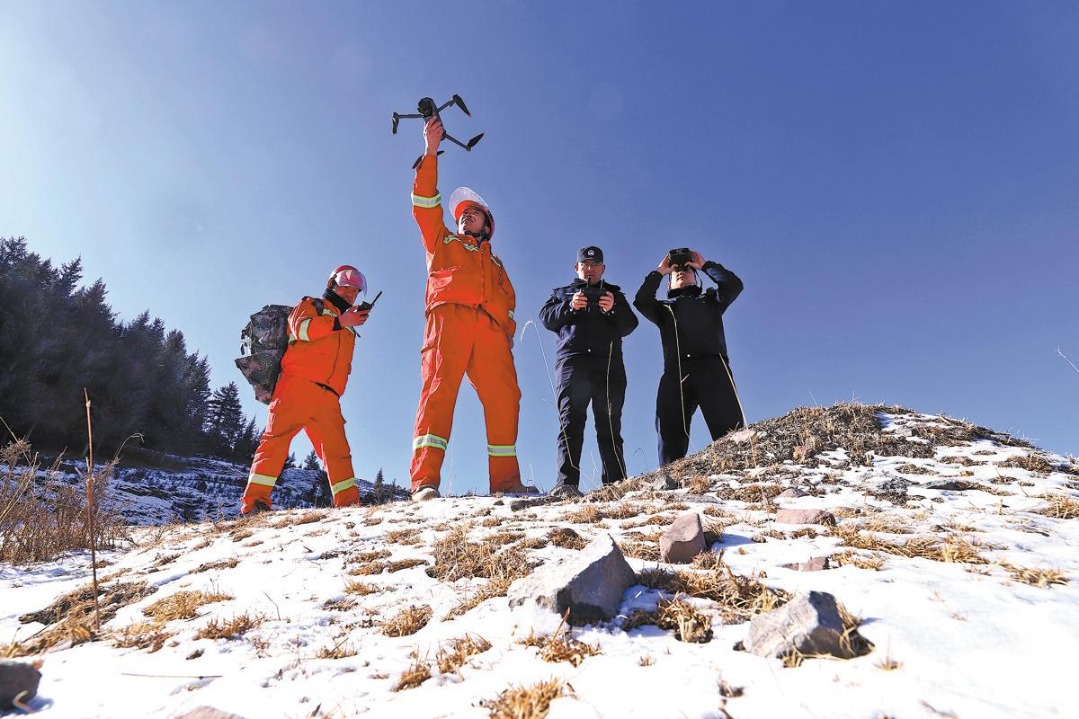'Digital business cards' connect rural communities with major industries

A public welfare initiative, AI Lights Up Rural Vitalization, was launched recently to harness artificial intelligence in rural development across 832 counties nationwide that have been lifted out of poverty. Olympic swimming champion Zhang Yufei was appointed as the initiative's public welfare ambassador.
Jointly organized by Beijing Normal University, tech firm DotFortune and Lingjun Investment, the initiative uses AI-powered "digital business cards" to connect rural areas with leading resources across industries, aiming to build a model of county-level industrial vitalization.
The initiative leveraged DotFortune's AI business card — an interactive tool embedded with educational, cultural, and commercial information from participating counties. Users can access texts, videos, images, and audio conversations to explore local agricultural products, intangible heritage, and tourism resources.
The AI cards also feature expert videos in fields such as education, health, psychology, and finance, helping rural residents expand their knowledge and skills, according to the organizers.
BNU vice-president Wang Shoujun said during the launch ceremony that the initiative is a continuation of the university's efforts on building teaching capacity in underdeveloped regions, as well as an innovative method to empower rural areas through education and technology.
At the ceremony, Chen Yunzhen, a provincial-level inheritor of Qiang embroidery, a national intangible cultural heritage, presented a handmade gift to Zhang Yufei. "For over 40 years, I've worked to make Qiang embroidery a shining cultural symbol," Chen said. "This AI card makes that dream possible, bridging time and distance to bring our culture to the world."
Cai Meijie, co-chair of the BNU Education Foundation and founder of DotFortune, said artificial intelligence should be a global public good and a powerful engine for inclusive development. As an AI startup, the company is working to build a cutting-edge platform based on experts and intelligent agents, aiming to deliver highly personalized services, she said.
Ma Liangkun, chief physician of the Department of Obstetrics and Gynecology at Peking Union Medical College Hospital, said she is willing to be part of this effort in health communication and looks forward to having her own AI business card in the future. "The AI card has deeply integrated technology with public health education," Ma said.
"In many rural areas, mothers often face a lack of knowledge during critical stages such as prenatal care and early childhood development. The AI business card, with its combination of short-form science videos and interactive Q&A features, can effectively address these challenges with precision," she added.
- Xi, Tokayev attend ceremony of exchanging cooperation documents
- Zhuhai checkpoints leading to Macao, Hong Kong register 100 million trips
- What the Shenzhou XX astronauts are doing after over 50 days in space
- Beijing-Tianjin-Hebei logistics index hit 52.17% in Q1 of 2025
- Science Talk: Is Red Sun threat rumor or reality?
- 6 remain missing after fireworks factory blast in Hunan, 1 dead





































